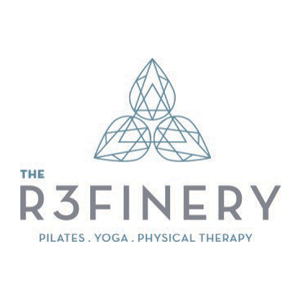Healthy Boundaries: What Are They And Why Do We Need Them?
Boundaries are not metaphorical invisible fences and walls that we put around ourselves to keep people out. A boundary is in fact a useful mechanism that helps make it easier for others to get close to us. Boundaries allow us to create healthy relationships by building a sense of trust with another. By setting healthy boundaries, we are creating clear guidelines regarding how we would like to be treated. It helps us determine what types of behaviors that we will accept from others as well as what types of behaviors others can expect from us. Healthy boundaries reinforce and help us maintain a sense of independence as well as interdependence. This allows us to become more aware of what is within our responsibilities and what is within the responsibilities of others. Boundaries help us separate our emotions from that of others.
Unhealthy Boundaries
By not having healthy boundaries, relationships are unable to survive, let alone flourish. The lack of healthy boundaries tend to eventually culminate into feelings of disappointment, resentment, and/or violation. Like with many things, boundaries can be seen as a continuum, with those that lie on either extremes to be unhelpful and dysfunctional.
On one extreme of the continuum lies unhealthy boundaries that are incredibly strict and rigid. Individuals who utilize these types of boundaries tend to have few close relationships, keep others at a distance, and may avoid close relationships altogether. In addition, these individuals may seem detached and disconnected, even with intimate partners. Having strict and rigid boundaries may lead to being cut off from the people around us. When boundaries are used in this way, they are no longer boundaries, but have become barriers instead.
On the other extreme of the continuum lies unhealthy boundaries that are so open and loose that they are essentially nonexistent. Individuals who utilize these types of boundaries often find it hard to say “no” to others and their requests. These individuals may have a tendency to please others due to the fear of rejection and/or abandonment. Other characteristics of these seemingly nonexistent boundaries are becoming overly involved in another person’s issues and oversharing too much personal information with other people. When boundaries are used in this way, they lend themselves to maladaptive relationship patterns, such as codependency and enmeshment, where we become unable to differentiate our own feelings from that of others.
Healthy Boundaries
Lying in the very center of the continuum are healthy boundaries. Individuals who utilize this type of boundary are aware of and understand their personal needs and wants and are also able to communicate them clearly and respectfully to others. These individuals value and respect their own opinions and are able to accept when other people disagree or say “no.” In addition, these individuals are able to share personal information in an appropriate manner by finding the balance between not sharing too much or too little. While it may be quite difficult to create and maintain “perfect” healthy boundaries all the time, we should at least strive to build this practice, which will only get easier over time. Remember, setting healthy boundaries is not mean or selfish, but is actually an important and often overlooked form of self-care.
Sources:
Written by Ashley Lai, MSW, LSW, Clinician at Presence of Mind Therapy
The post Healthy Boundaries: What Are They And Why Do We Need Them? appeared first on Presence Of Mind Therapy.






















Share On: